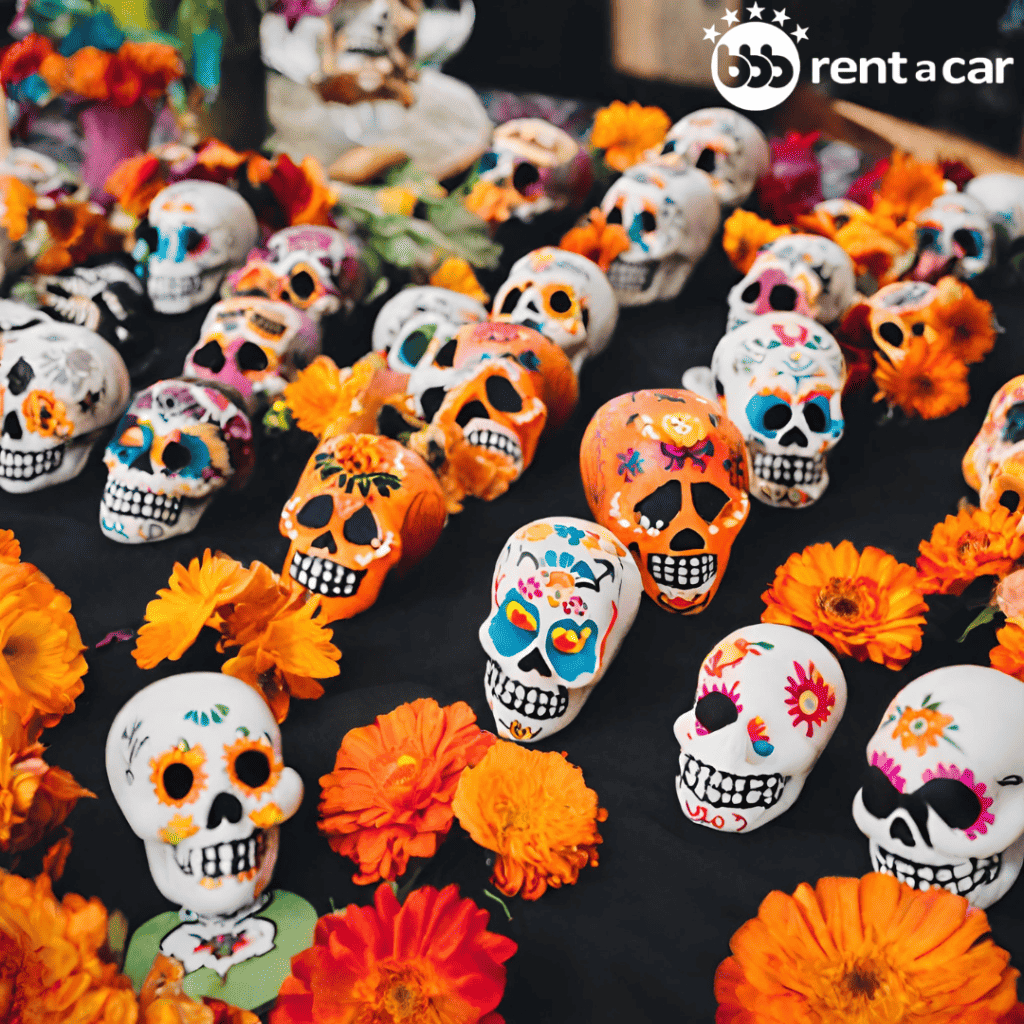Day of the Dead previous traditions in Mexico
The Day of the Dead is a traditional Mexican festival with its roots in various pre-Hispanic indigenous cultures, such as the Aztec and Maya, as well as Catholic beliefs introduced with the arrival of the Spanish. Before the arrival of Europeans, these native cultures had their own celebrations dedicated to the dead. Here are some of the pre-existing traditions in Mexico related to the Day of the Dead:
- Aztec Miccailhuitontli Festival: The Aztecs celebrated a festival called Miccailhuitontli, which lasted a month and honored the dead. During this period, people left offerings of food and personal items on altars and graves for their deceased loved ones. They also held rituals and ceremonies to invoke the spirits of the dead.
- Maya Hanal Pixán Festival: The Maya had a similar celebration called Hanal Pixán, which means “food of the souls.” During this celebration, families left offerings of food on altars for their departed loved ones and believed that the souls of the dead returned to visit the living.
- Catholic Influences: After the arrival of the Spanish and the imposition of Catholicism in Mexico, these indigenous traditions merged with Catholic holidays such as All Saints’ Day (November 1) and All Souls’ Day (November 2). This gave rise to the celebration of the Day of the Dead, which incorporated religious elements like visits to cemeteries and the construction of altars in homes.
- Calaveras and Catrinas: Representations of death, such as skulls and Catrinas, became prominent in the iconography of the Day of the Dead. These figures, often elegantly dressed, are used to remind people of the inevitability of death and originate from the satirical illustrations and skulls created by José Guadalupe Posada.
The Day of the Dead is a festival rich in traditions and symbolism, reflecting the blend of indigenous and European cultural influences in Mexico. Over the years, this celebration has evolved and remains an important part of Mexican culture, where families come together to honor their deceased loved ones and celebrate life.

In Los Cabos, Mexico, the Day of the Dead, or “Día de los Muertos,” is a unique and vibrant celebration deeply rooted in Mexican culture. Visitors to this beautiful region can partake in a variety of traditional activities during this time, where the holiday takes on a distinctly local flavor. One of the most common traditions in Los Cabos is the creation of colorful and elaborate ofrendas, or altars, dedicated to deceased loved ones. These ofrendas are adorned with marigold flowers, candles, incense, and the favorite foods and beverages of the departed. The altars are often set up in homes, cemeteries, and public spaces, and they serve as a focal point for families to gather and reminisce about their ancestors.
Another integral part of the celebration in Los Cabos is the participation in processions and parades, where individuals paint their faces as vibrant calaveras (sugar skulls) and don traditional Catrina costumes. These lively parades wind through the streets, accompanied by music, dancing, and the joyful sound of mariachi bands. The atmosphere is both festive and reverent, creating a unique blend of commemoration and celebration that is characteristic of Día de los Muertos in Los Cabos. Visitors can immerse themselves in this rich cultural experience, learning about the customs, traditions, and the deep sense of respect that Mexicans hold for their ancestors during this special time of the year.
